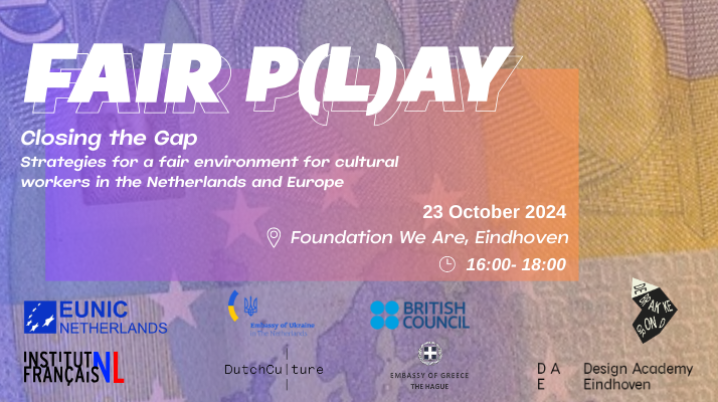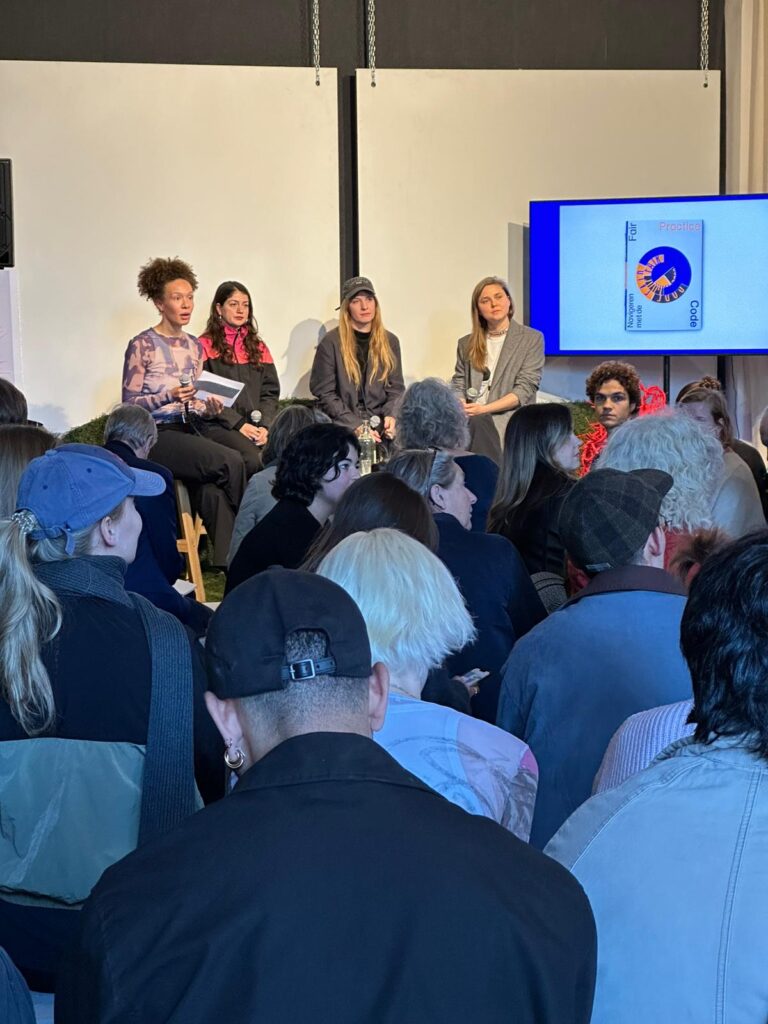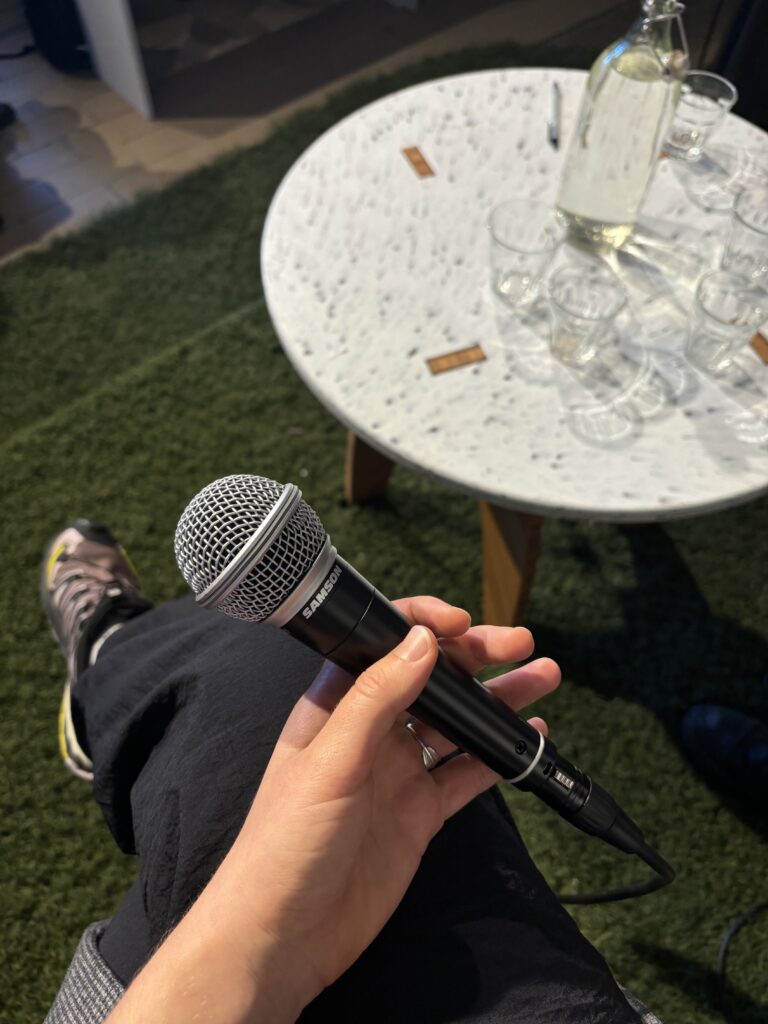Panel Discussion: FAIR P(L)AY #4: Closing the Gap

For those starting out in the creative field, the path to establishing themselves can be unclear and, at times, a bit confusing. Many in the creative sector often learn the hard way about challenges such as undervaluation and unclear expectations for commissions. This especially impacts Ukrainian creatives, who, as individuals under temporary protection in the Netherlands, are unable to register as freelancers (ZZP’ers).
This is why on October 23, EUNIC Netherlands, Design Academy Eindhoven and DutchCulture hosted a panel discussion called FAIR P(L)AY #4 – Closing the Gap, offering emerging creative professionals a space to unravel what it means to professionally thrive in the creative industry.
Held at the Foundation We Are in Eindhoven, this panel discussion brought together local and international stakeholders to tackle a critical question: How do we define fair practice in the arts?

FAIR P(L)AY – Closing the Gap is a fourth annual instalment in the FAIR P(L)AY series of events, discussing sustainable remuneration practices in the creative and cultural sectors. In this iteration, expertly moderated by Isabel Sheridan, our co-founder Oksana Savchuk starred next to two other insightful speakers from different backgrounds within creative industries:
- Lorraine Hellwig, a European “post-artist” and portrait and reportage photographer working across different media;
- Elia Kalogianni, an Amsterdam/Athens-based visual artist and filmmaker

Addressing challenges for Ukrainian creatives in the Netherlands
Oksana shared insights into promoting Ukrainian culture and addressed the unique challenges faced by displaced Ukrainian creative and cultural professionals under temporary protection in the Netherlands.
“In times of war, art is a lifeline for preservation of identity, emotions and memory. Restrictions on self-employment in the Netherlands hinder the expression of Ukrainian displaced artists’ creative potential,” says Oksana.
Currently, displaced persons from Ukraine who fall under the Temporary Protection Directive are not allowed to be self-employed in the Netherlands unless they have an employment permit for entrepreneurs or the contracting party has an employment permit (tewerkstellingsvergunning – TWV).
However, companies in the creative sector cannot provide such a permit. And worse still, it means Ukrainian under temporary protection cannot legally freelance to do short-term project-based work.
In addition to the challenges of navigating and establishing themselves in an entirely new and at times vastly different labor market, these permits are nearly impossible to obtain, which effectively bar many Ukrainian creatives from entering it in the first place.
Support for Ukrainian artists
To help overcome these barriers, VATAHA is preparing an appeal letter to the Ministry of Social Affairs and Employment in the Netherlands regarding the potential simplification of the procedure for obtaining a work permit (tewerkstellingsvergunning – TWV) for self-employed individuals (ZZP’ers) who are Ukrainian displaced persons.
This includes outlining the specific requirements that artists, particularly Ukrainian citizens under temporary protection in the Netherlands, must fulfill to legally comply with the regulations for working as self-employed individuals.
As VATAHA continues to advocate for fair compensation and support for all artists, we invite you to join our initiative through the link:
For those unable to attend the panel discussion, listen to the pre-event interview here.
Check out Lorraine Hellwig, Elia Kalogianni and Isabel Sheridan‘s work on Instagram, and follow VATAHA’s Instagram page too!